Japanese Encephalitis Vaccine in Ealing, London: Complete Guide
July 18, 2025
17 minute read
Planning a trip to rural Thailand? Off to explore Japan’s countryside? Working in rural Cambodia? If you’re heading anywhere in Asia where mosquitoes buzz about rice paddies and pig farms, you’ve probably come across Japanese Encephalitis on your travel health checklist. And you’re probably wondering, do I actually need this vaccine, or is it just another expensive jab that travel clinics push on everyone?
Let me give you the straight answer. Japanese Encephalitis is nasty stuff. Really nasty. We’re talking about a virus that can cause brain inflammation, coma, and permanent neurological damage. Here’s what you need to know: the vaccine works brilliantly, and figuring out whether you need it is actually pretty straightforward.
At Ealing Travel Clinic, we help West London travellers make informed decisions about Japanese Encephalitis vaccination every day. This comprehensive guide will walk you through everything you need to know about JE vaccination, from understanding the risks to booking your appointment in Ealing.

What Is Japanese Encephalitis?
Japanese Encephalitis isn’t actually from Japan (confusing, I know). It’s found across Asia and parts of the Pacific, spread by Culex mosquitoes that breed in flooded rice fields, pig farms, and similar rural areas. These aren’t your typical house mosquitoes – they’re rural specialists that love agricultural environments.
The virus causes inflammation of the brain (encephalitis). Most people who get infected don’t develop symptoms, but when symptoms do occur, they’re serious:
- High fever and severe headache
- Neck stiffness and confusion
- Seizures and paralysis
- Coma in severe cases
Here’s the sobering bit: about 20-30% of people who develop severe JE symptoms die from it, and 30-50% of survivors have permanent neurological problems. Children are particularly vulnerable.
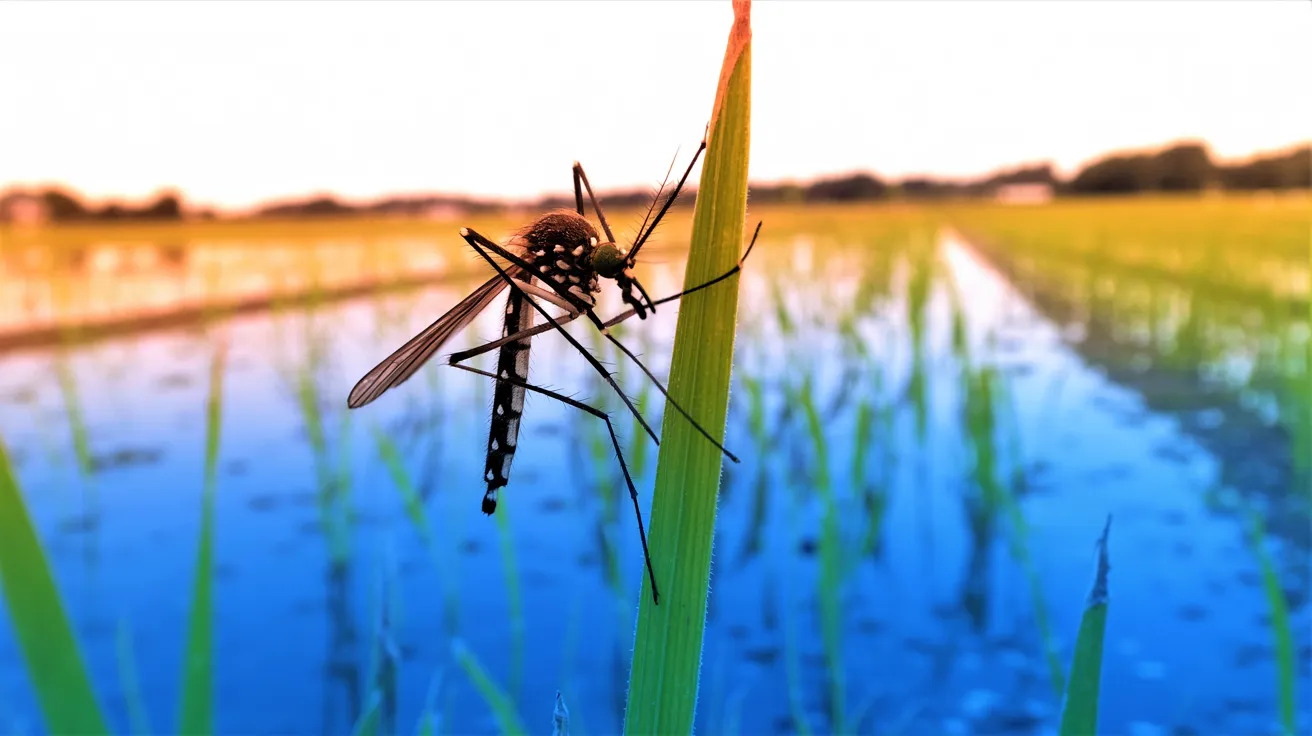
Who Needs Japanese Encephalitis Vaccination?
Not everyone travelling to Asia needs the JE vaccine. The risk depends on several factors, and understanding these helps you make an informed decision about vaccination.
High Risk Travellers (Vaccination Strongly Recommended)
- Long-term travellers – Anyone spending more than a month in rural endemic areas
- Rural workers – Aid workers, agricultural researchers, military personnel
- Extensive outdoor activities – Trekking, camping, cycling through rural areas
- Travel during transmission season – May to October in most areas
- Laboratory workers – Those handling JE virus or potentially infected materials
Moderate Risk Travellers (Consider Vaccination)
- Short-term rural visitors – Even a week in rural areas during peak season carries some risk
- Urban travellers with rural excursions – Day trips to rice paddies, rural temples
- Travel to endemic islands – Parts of Indonesia, Philippines, Papua New Guinea
- Uncertain itinerary – Plans might change to include rural areas
Lower Risk Travellers (Usually Don’t Need Vaccination)
- Urban-only travel – Staying in cities like Bangkok, Tokyo, Seoul, Singapore
- Beach resort holidays – Coastal areas with minimal rural exposure
- Business travellers – Airport-hotel-office with minimal outdoor exposure
Winter travel – Outside transmission season (November-April in most areas)

Where Is Japanese Encephalitis Found?
JE is endemic across a vast area of Asia and the Pacific. Risk varies by country, season, and specific location within countries.
High-risk countries and regions:
- Cambodia – Widespread rural risk, year-round transmission
- Laos – Rural areas, particularly during wet season
- Vietnam – Rural areas, especially Red River and Mekong deltas
- Thailand – Rural areas, northern provinces highest risk
- Myanmar – Rural areas, limited surveillance data
- Bangladesh – Rural areas, significant recent outbreaks
- Nepal – Terai region (southern plains)
- Eastern India – Particularly West Bengal, Assam, Bihar
- Rural China – Southern provinces, decreasing due to vaccination programmes
- Philippines – Rural areas, particularly Luzon
- Indonesia – Java, Bali (rice-growing areas), other islands variable
- Papua New Guinea – Mainland and some islands
For current country-specific risk assessments, consult current travel health guidance from official sources.

Moderate risk:
- Japan – Rare cases, mostly rural areas during summer
- South Korea – Very rare, mostly rural areas
- Taiwan – Occasional cases in rural areas
- Malaysia – Mainly Peninsular Malaysia, some risk in Borneo
- Brunei – Limited data, presumed low risk
Minimal/No risk:
- Singapore – Urban environment, no recent cases
- Hong Kong – Urban environment, extremely rare
Macau – Urban environment, no recent cases
Japanese Encephalitis Vaccine Schedule and Protection
The Japanese Encephalitis vaccination consists of two doses given a month apart. There is also an accelerated course of the vaccine which can be completed over 1 week.
The Japanese Encephalitis vaccine (Ixiaro) is highly effective and well-tolerated. Understanding the vaccination schedule helps you plan your travel timing properly.
Standard Vaccination Schedule
- Dose 1: Day 0
- Dose 2: Day 28 (4 weeks later)
- Protection begins: 7 days after the second dose
- Duration: At least 12-24 months, possibly longer
Accelerated Schedule (For Urgent Travel)
- Dose 1: Day 0
- Dose 2: Day 7 (1 week later)
- Protection begins: 7 days after the second dose
Efficacy: Slightly lower than standard schedule but still very good
Vaccine Effectiveness
Clinical trials show the JE vaccine is highly effective:
- Primary series: 96-100% protection after 2 doses
- Duration: Antibodies persist for at least 12-24 months
- Booster: May be needed for continued high-risk exposure
- Cross-protection: May provide some protection against related viruses
Japanese Encephalitis Vaccine Side Effects
Like all vaccines, JE vaccine can cause side effects. The good news is that serious reactions are very rare, and most people tolerate it well.
Common Side Effects (Affecting 10-30% of people)
- Injection site reactions – Pain, redness, swelling at injection site
- Headache – Usually mild and resolves within 1-2 days
- Muscle aches – General body aches, similar to mild flu
- Fatigue – Feeling tired for a day or two
Less Common Side Effects (Affecting 1-10% of people)
- Mild fever – Usually low-grade and short-lived
- Nausea – Occasionally stomach upset
- Dizziness – Brief episodes, usually mild
- Rash – Small, localised skin reactions
Rare But Serious Side Effects (Less than 1 in 10,000 doses)
- Severe allergic reaction (anaphylaxis) – Breathing difficulties, widespread rash, requiring immediate medical attention
- Extensive swelling – Large local reactions at injection site
- Neurological symptoms – Extremely rare reports of nerve-related symptoms
Who Should Not Have Japanese Encephalitis Vaccine?
- Severe illness – Wait until you’re well
- Previous severe reaction – To any component of the vaccine
Severe immunodeficiency – Discuss with spec
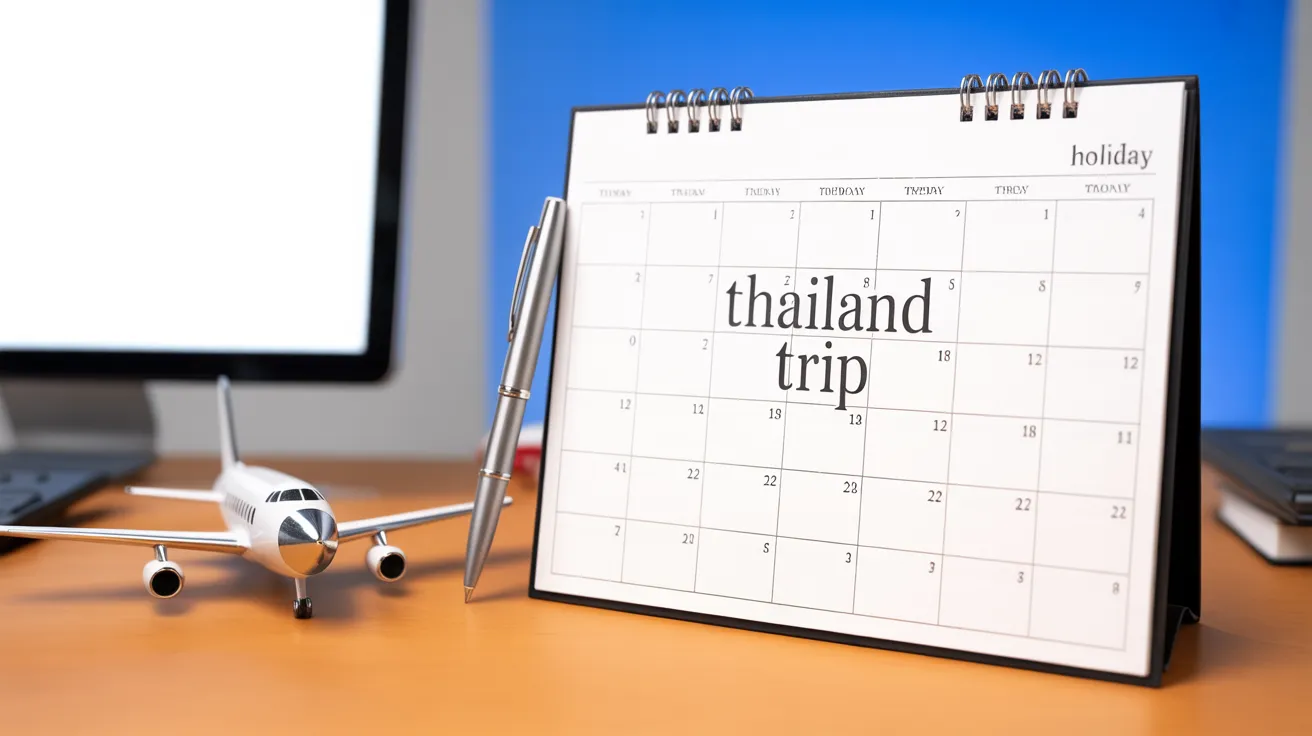
Japanese Encephalitis Vaccination Cost
Let’s talk about money, because travel vaccines aren’t cheap and you deserve to know exactly what you’re paying for.
Japanese Encephalitis Vaccine Pricing at Ealing Travel Clinic
- Cost per dose: £90
- Complete course: £180 (2 doses)
- Consultation: Included in vaccine price
- Certificate: Provided free with vaccination
Value Comparison
- Professional consultation – Risk assessment specific to your travel plans
- High-quality vaccine – Ixiaro, the gold standard JE vaccine
- Proper storage and handling – Vaccines kept at correct temperature
- Expert administration – Qualified healthcare professionals
- Post-vaccination advice – What to expect and when to seek help
- Documentation – Proper vaccination records for your travels
Compare this to treating Japanese Encephalitis abroad (if treatment is available), medical evacuation costs, or long-term neurological care. The vaccine is excellent value for peace of mind.
Specific Travel Scenarios: Do You Need JE Vaccine?
Let’s get practical. Here are common travel scenarios and honest advice about whether you need Japanese Encephalitis vaccination.
Scenario 1: Two-Week Thailand Holiday
Trip: Bangkok, Phuket, maybe a day trip to countryside temples Recommendation: Probably not needed Reasoning: Urban areas and beach resorts have minimal JE risk. Brief rural exposure in developed tourist areas is low risk.
Consider vaccination if:
- Extensive rural activities planned
- Travelling during peak mosquito season (May-October)
- Particularly risk-averse

Scenario 2: Month-Long Southeast Asia Backpacking
Trip: Thailand, Vietnam, Cambodia – mix of cities and rural areas Recommendation: Strongly recommended Reasoning: Extended exposure, multiple countries, likely rural activities, uncertain accommodation standards.
Definitely get vaccinated if:
- Staying in rural guesthouses
- Trekking or cycling
- Visiting during wet season
- Tight budget might mean suboptimal accommodation
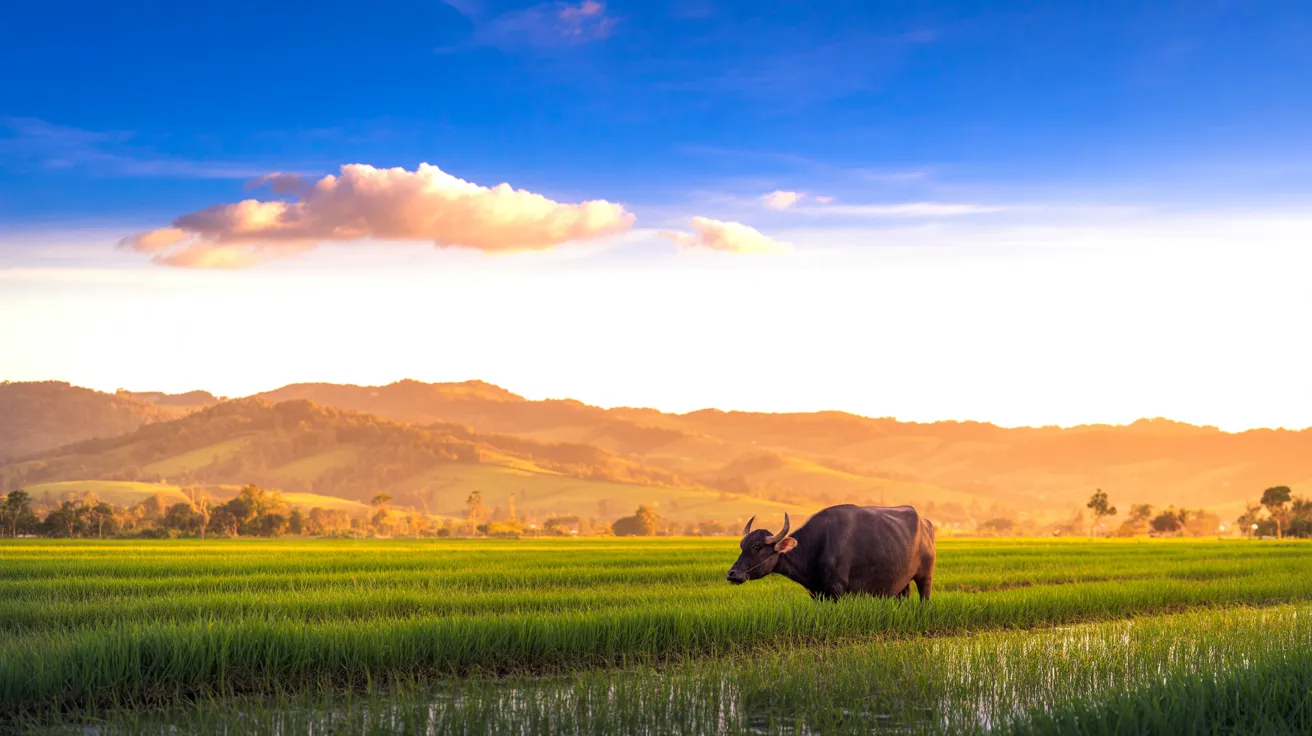
Scenario 3: Business Trip to Rural China
Trip: Week in rural agricultural area for work Recommendation: Consider strongly Reasoning: Even short exposure in high-risk rural areas warrants vaccination, especially if repeated trips likely.
Factors supporting vaccination:
- Working near rice fields or pig farms
- Outdoor work during transmission season
- Company can cover vaccine costs
- Future trips to similar areas likely
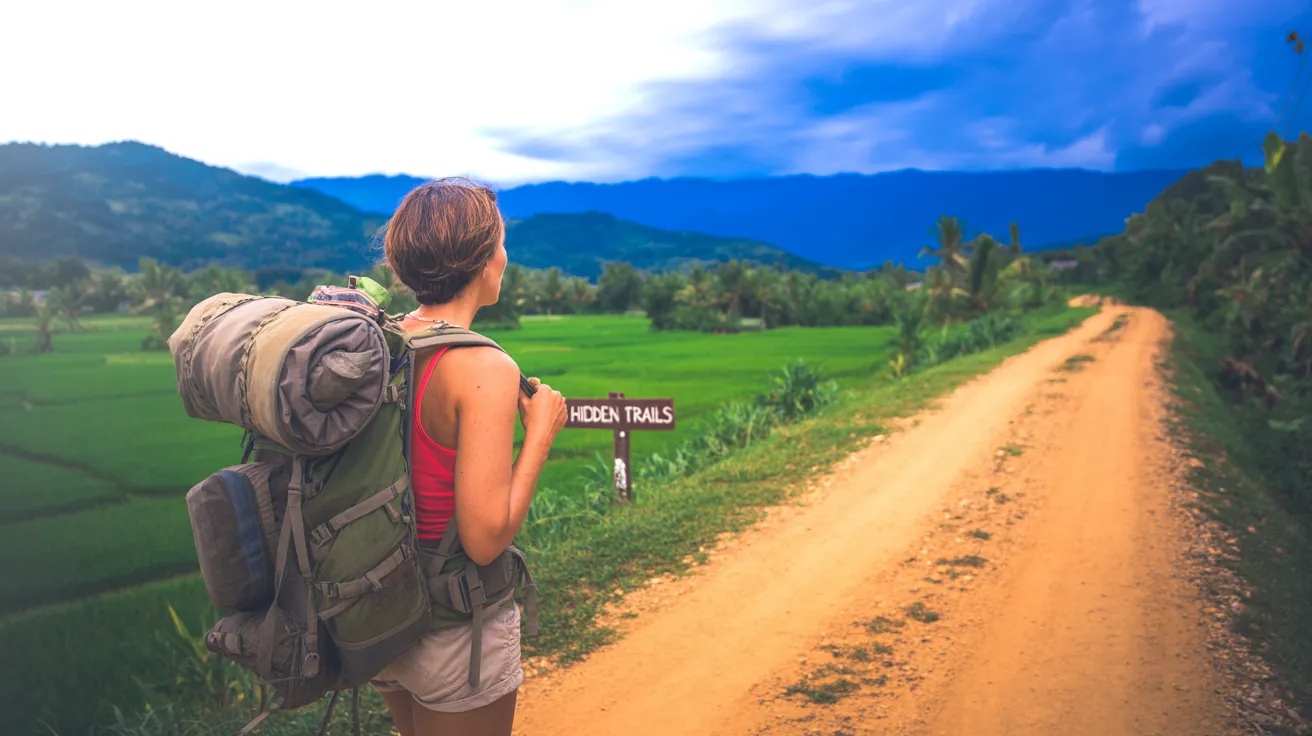
Scenario 4: Teaching English in Rural Asia
Trip: Year-long placement in rural school Recommendation: Essential Reasoning: Long-term rural exposure in endemic area – highest risk category.
Additional considerations:
- May need booster after 12-24 months
- Other vaccines also crucial (hepatitis, typhoid, etc.)
- Good travel insurance essential
- Local medical facilities may be limited
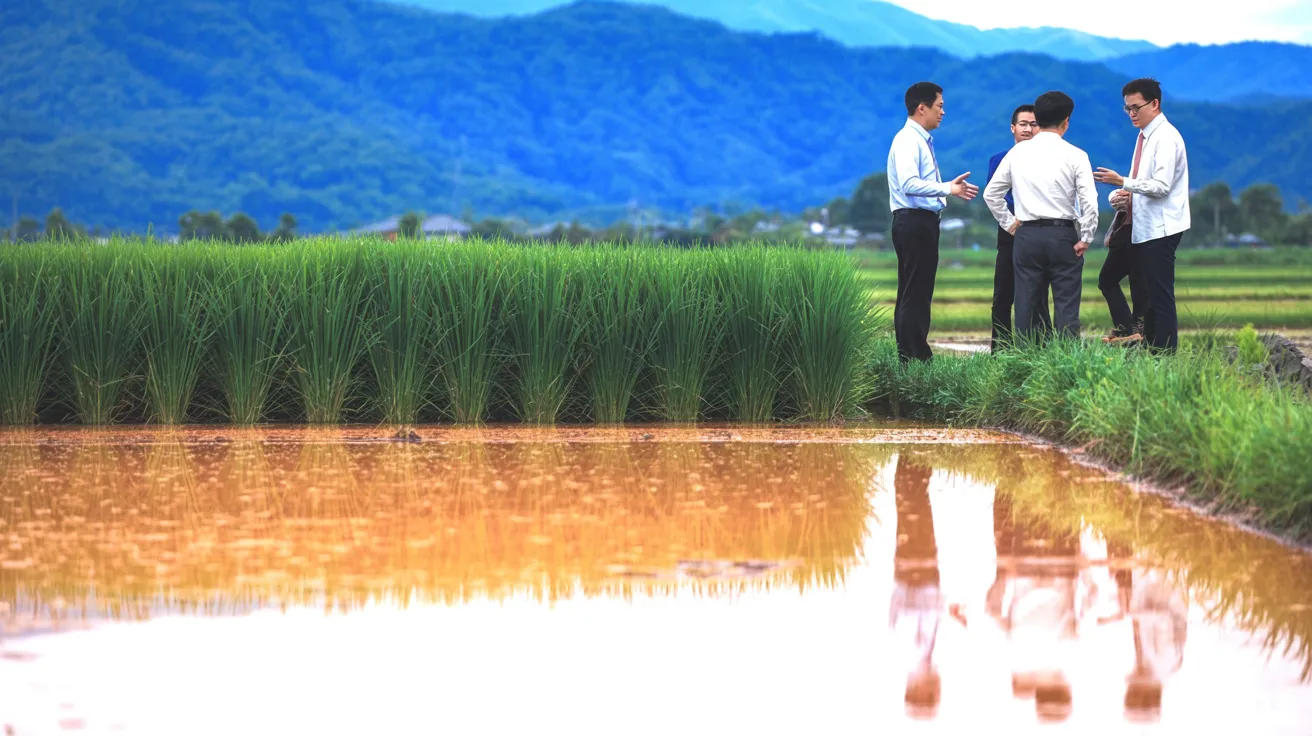
Scenario 5: Family Holiday to Japan
Trip: Two weeks in Tokyo, Kyoto, maybe Mount Fuji Recommendation: Not needed Reasoning: Modern Japan has very low JE risk, especially in tourist areas.
Consider vaccination if:
- Extended rural hiking planned
- Summer travel to rural areas
- Travel to less touristy rural regions
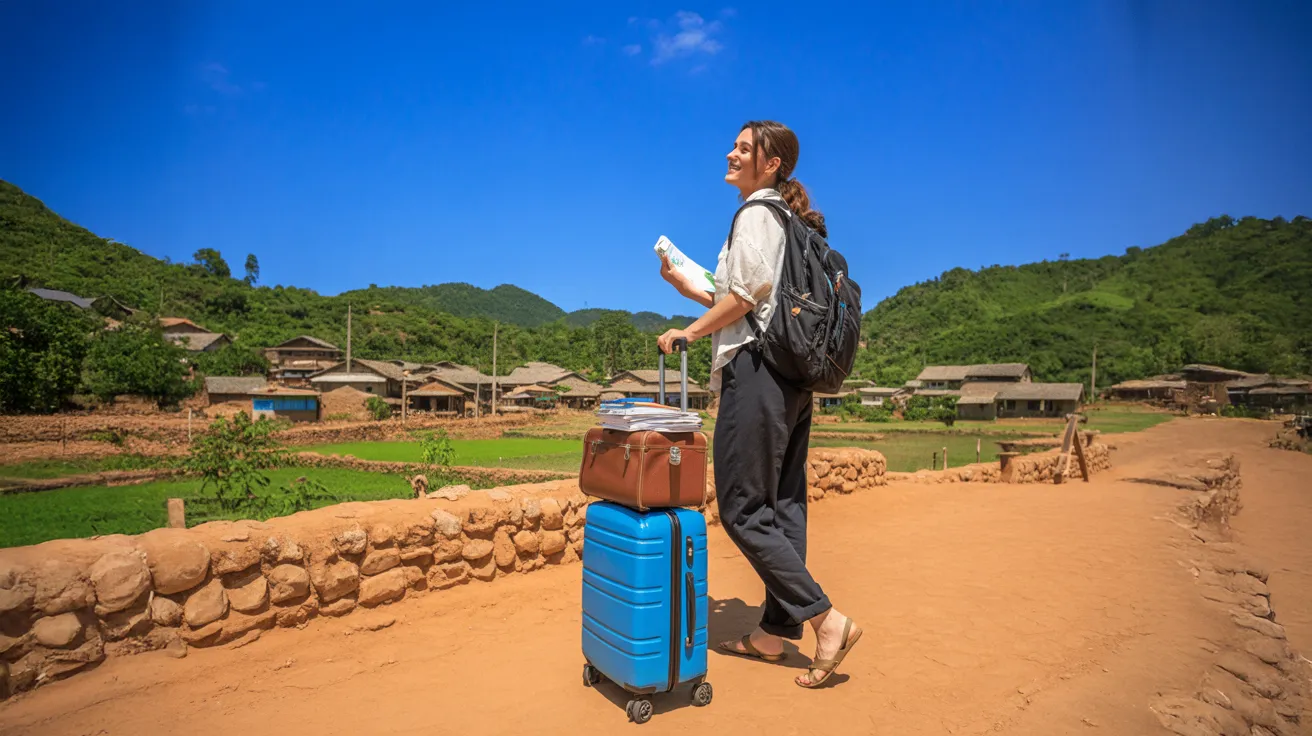
Japanese Encephalitis Prevention Beyond Vaccination
Vaccination is the best protection, but mosquito bite prevention remains important even if you’re vaccinated.
Mosquito Bite Prevention
Clothing protection:
- Long sleeves and trousers during peak biting times (dusk to dawn)
- Light-coloured clothing (mosquitoes prefer dark colours)
- Permethrin-treated clothing for extended outdoor activities
Insect repellent:
- DEET 20-50% for skin
- Picaridin as alternative to DEET
- Reapply according to product instructions
- Don’t forget feet, ankles, and wrists
Accommodation choices:
- Air-conditioned rooms when possible
- Intact window and door screens
- Bed nets if screens inadequate
- Avoid ground floor rooms near stagnant water

Japanese Encephalitis Prevention Beyond Vaccination
Vaccination is the best protection, but mosquito bite prevention remains important even if you’re vaccinated.
Mosquito Bite Prevention
Clothing protection:
- Long sleeves and trousers during peak biting times (dusk to dawn)
- Light-coloured clothing (mosquitoes prefer dark colours)
- Permethrin-treated clothing for extended outdoor activities
Insect repellent:
- DEET 20-50% for skin
- Picaridin as alternative to DEET
- Reapply according to product instructions
- Don’t forget feet, ankles, and wrists
Accommodation choices:
- Air-conditioned rooms when possible
- Intact window and door screens
- Bed nets if screens inadequate
- Avoid ground floor rooms near stagnant water
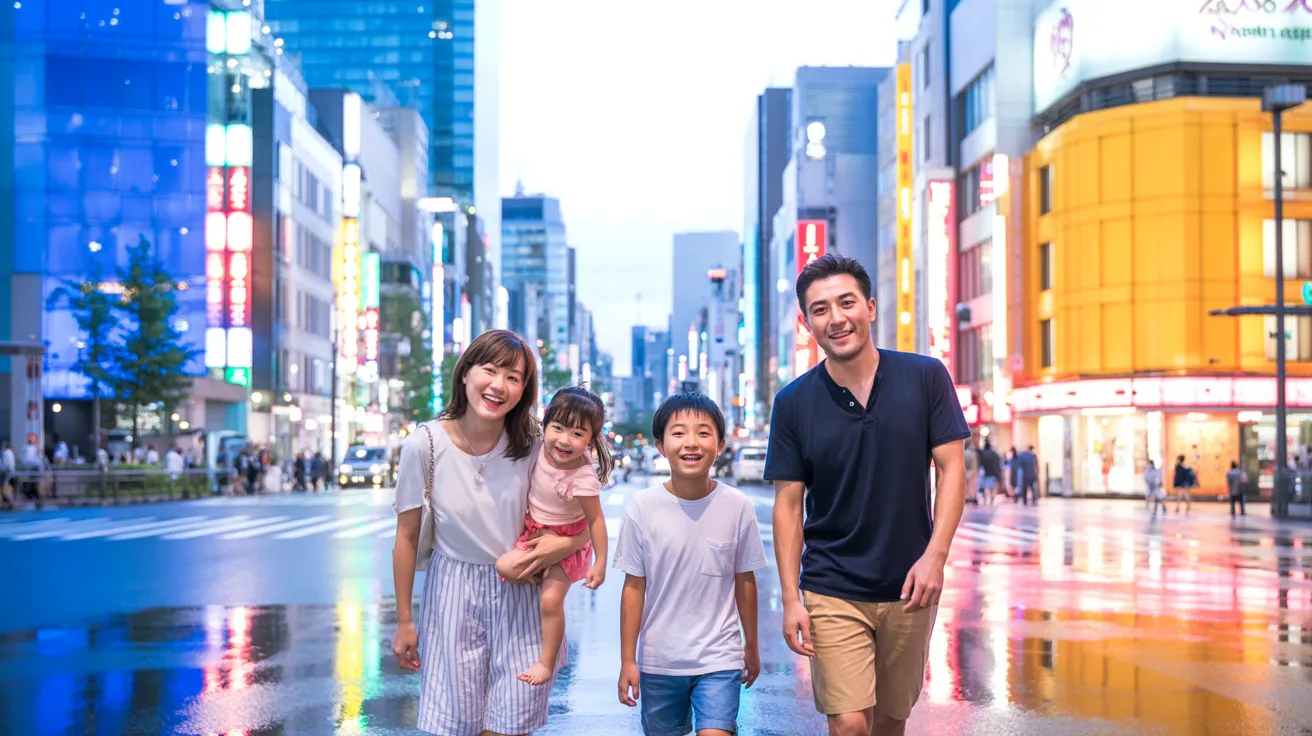
Environmental Awareness
High-risk environments to be aware of:
- Rice paddies, especially flooded fields
- Pig farms and other livestock areas
- Irrigation channels and ditches
- Rural areas during and after rainfall
Timing considerations:
- JE mosquitoes are most active at dusk and dawn
- Wet season increases mosquito breeding
- Avoid unnecessary outdoor activities during peak biting times
Japanese Encephalitis Vaccine and Other Travel Health
JE vaccination is often part of a broader travel health strategy. Here’s how it fits with other common travel health measures.
Commonly Combined Vaccines
When getting JE vaccine, travellers often need:
- Hepatitis A – Food and water contamination risk
- Typhoid – Another food/water risk in developing countries
- Hepatitis B – Longer trips or potential medical exposure
- Tetanus/Diphtheria/Polio – Routine boosters
- Yellow Fever – If travelling to/from endemic areas
Vaccination Scheduling
- JE vaccine can be given with other vaccines – Different injection sites
- No interference with other vaccines – Immune response not affected
- Multiple vaccines save appointments – More convenient for busy schedules
- Timing considerations – Some vaccines need specific intervals
Travel Health Beyond Vaccines
- Malaria prevention – Tablets for endemic areas
- Traveller’s diarrhoea – Prevention and treatment strategies
- Altitude sickness – For high-altitude destinations
- Travel insurance – Comprehensive cover essential
- First aid supplies – Basic medical kit
Special Populations and Japanese Encephalitis Vaccine
Some groups need special consideration when it comes to JE vaccination.
Pregnancy and Breastfeeding
- Pregnancy – JE vaccine generally avoided unless high risk outweighs potential risks
- Breastfeeding – Safe to vaccinate while breastfeeding
- Planning pregnancy – Complete vaccination before conception if possible
Children
- Age recommendations – JE vaccine licensed for children 2 months and older
- Dosing – Same doses as adults, just smaller injection volume
- Side effects – Generally well-tolerated in children
- Special considerations – Children may be at higher risk from JE disease
Elderly Travellers
- Vaccine response – May be slightly reduced but still protective
- Side effects – No increase in serious reactions
- Health conditions – Discuss with doctor if multiple medical conditions
Immunocompromised Travellers
- HIV/AIDS – JE vaccine safe if CD4 count adequate
- Cancer treatment – Discuss timing with oncologist
- Immunosuppressive drugs – May reduce vaccine effectiveness
- Specialist advice – Travel medicine specialist consultation recommended
Timing Your Japanese Encephalitis Vaccination in Ealing
Getting the timing right is crucial for proper protection and travel convenience. At Ealing Travel Clinic, we recommend booking your consultation as early as possible to ensure optimal protection.
Ideal Timeline for West London Travellers
- 8-6 weeks before travel – Plenty of time for standard schedule
- 5-6 weeks before travel – Standard schedule just fits
- 2-4 weeks before travel – Accelerated schedule needed
- Less than 2 weeks – Still worth having, partial protection better than none
Book your consultation at Ealing Travel Clinic: 0208 567 0982
Practical Scheduling Considerations
- Work/study commitments – Plan around important events in case of mild side effects
- Multiple vaccines – Our specialists can coordinate all travel vaccines in one visit
- Travel documents – Allow time for visa applications requiring health certificates
- Travel insurance – Some policies require vaccination a certain time before travel
Ready to book your Japanese Encephalitis vaccination? Contact Ealing Travel Clinic on 0208 567 0982 to schedule your consultation.
Test Your Japanese Encephalitis Knowledge
Before you book your vaccination, test what you know about Japanese Encephalitis with our interactive quiz. Many travelers have misconceptions about JE that could affect their health decisions.
Find All Your Travel Vaccines
Planning a trip to multiple destinations? Use our interactive travel accelerator tool to discover all the vaccines you might need for your specific destinations.
Japanese Encephalitis Surveillance and Updates
JE risk assessment changes based on ongoing surveillance and research. Staying informed helps you make better decisions.
Recent Developments (2025)
- Improved surveillance – Better reporting from previously data-poor regions
- Climate change effects – Changing rainfall patterns affecting mosquito breeding
- Urbanisation impact – Some traditional risk areas becoming lower risk
- New outbreaks – Occasional emergence in previously low-risk areas
Information Sources
- WHO – Global surveillance and recommendations
- CDC – US-based travel health guidance
- NATHNAC – UK travel health network
- Local health departments – Destination-specific updates
Staying Updated
Travel health recommendations can change based on:
- Disease outbreaks
- Seasonal patterns
- Political situations affecting surveillance
- New research on vaccine effectiveness
At Ealing Travel Clinic, our specialists stay current with the latest developments through professional medical networks and official health surveillance systems, ensuring you receive the most up-to-date risk assessment for your specific travel plans.
Frequently Asked Questions About Japanese Encephalitis Vaccination
Getting Your Japanese Encephalitis Vaccine at Ealing Travel Clinic
Ready to get protected? At Ealing Travel Clinic, we make Japanese Encephalitis vaccination straightforward and professional.
What to Expect at Your Appointment
- Personalised risk assessment – We’ll discuss your specific travel plans
- Clear explanation – Understanding what you’re getting and why
- Professional vaccination – Quick, clean, and properly documented
- Post-vaccination advice – What to expect and when to worry
- Scheduling flexibility – Standard or accelerated schedules available
Why Choose Ealing Travel Clinic for JE Vaccination?
- Travel health specialists – Focused expertise in travel medicine
- Up-to-date knowledge – Current on global JE epidemiology
- Quality vaccines – Properly stored and handled Ixiaro vaccine
- Convenient location – Easy access from Ealing, Acton, Hanwell, and surrounding areas
- Comprehensive service – All your travel health needs in one place
Booking Your Japanese Encephalitis Vaccination
Ready to protect yourself against Japanese Encephalitis? Don’t wait until the last minute. Contact Ealing Travel Clinic today to book your consultation and vaccination.
Whether you’re planning a business trip to rural China, backpacking through Southeast Asia, or taking a gap year in Cambodia, proper vaccination is your best defence against this serious disease.
Our travel health specialists are here to provide expert advice tailored to your specific travel plans and ensure you’re properly protected for your journey.
Making the Most of Your Appointment
To get the best from your Ealing Travel Clinic visit:
Before Your Appointment
- Create a detailed itinerary list – Include all countries you’re visiting, even brief stopovers
- Research your accommodation types – Rural guesthouses vs city hotels affects risk assessment
- Gather vaccination history – Bring any previous vaccination records or certificates
- List health conditions – Include current medications and any allergies
- Plan your timing – Book 6-8 weeks before travel for optimal protection
During Your Consultation
- Be honest about your budget – We can prioritise essential vaccines if cost is a factor
- Ask about combination vaccines – Reduce the number of injections needed
- Discuss bite prevention strategies – Protection beyond vaccination is crucial
- Understand side effects – Know what to expect and when to seek help
- Get destination-specific advice – Malaria prevention, food safety, altitude sickness
After Your Vaccination
- Schedule your second dose – Essential for full Japanese Encephalitis protection
- Set calendar reminders – For any required booster doses
- Keep documentation safe – Store vaccination certificates with travel documents
- Monitor for side effects – Know when mild reactions are normal vs concerning
- Plan travel insurance – Ensure coverage includes activities you’ll be doing
- Contact Ealing Travel Clinic – If you have any concerns or questions after vaccination
Why Choose Ealing Travel Clinic for Japanese Encephalitis Vaccination?
- Expert travel health specialists – Qualified professionals focused specifically on travel medicine
- Convenient West London location – Easy access from Ealing, Acton, Hanwell, and surrounding areas
- Comprehensive service – All your travel vaccines and health needs in one appointment
- Same-day appointments available – No lengthy waits when you need urgent vaccination
- Personalised risk assessment – Advice tailored to your specific destination and activities
- Competitive pricing – Fair, transparent costs with no hidden fees
- Professional aftercare – Support and advice after your vaccination
Whether you’re a busy professional in Ealing Broadway, a family in Acton planning your first Asian adventure, or a frequent business traveller from Hanwell, our clinic provides expert travel health services when you need them.
Contact us today: 0208 567 0982
Current JE Outbreaks and Travel Advisories
Japanese Encephalitis surveillance changes frequently. Recent developments include outbreaks in Australia (2022-2025) and ongoing transmission in traditional endemic areas.
At Ealing Travel Clinic, we stay updated on current JE activity through professional networks and official health surveillance systems to provide you with the most current risk assessment.
Medical Disclaimer: This information is for educational purposes and provides general guidance on Japanese Encephalitis vaccination. For personalised recommendations based on your specific health status and travel plans, book a consultation with our travel health specialists at Ealing Travel Clinic.
Table of Contents
- What Is Japanese Encephalitis?
- Who Needs Japanese Encephalitis Vaccination?
- Japanese Encephalitis Vaccine Schedule and Protection
- Japanese Encephalitis Vaccine Side Effects
- Japanese Encephalitis Vaccination Cost
- Specific Travel Scenarios: Do You Need JE Vaccine?
- Japanese Encephalitis Prevention Beyond Vaccination
- Japanese Encephalitis Prevention Beyond Vaccination
- Japanese Encephalitis Vaccine and Other Travel Health
- Special Populations and Japanese Encephalitis Vaccine
- Test Your Japanese Encephalitis Knowledge
- JE Myth Buster Quiz
- Find All Your Travel Vaccines
- Japanese Encephalitis Surveillance and Updates
- Frequently Asked Questions About Japanese Encephalitis Vaccination
- Getting Your Japanese Encephalitis Vaccine at Ealing Travel Clinic
- Making the Most of Your Appointment
- Why Choose Ealing Travel Clinic for Japanese Encephalitis Vaccination?
- Current JE Outbreaks and Travel Advisories

